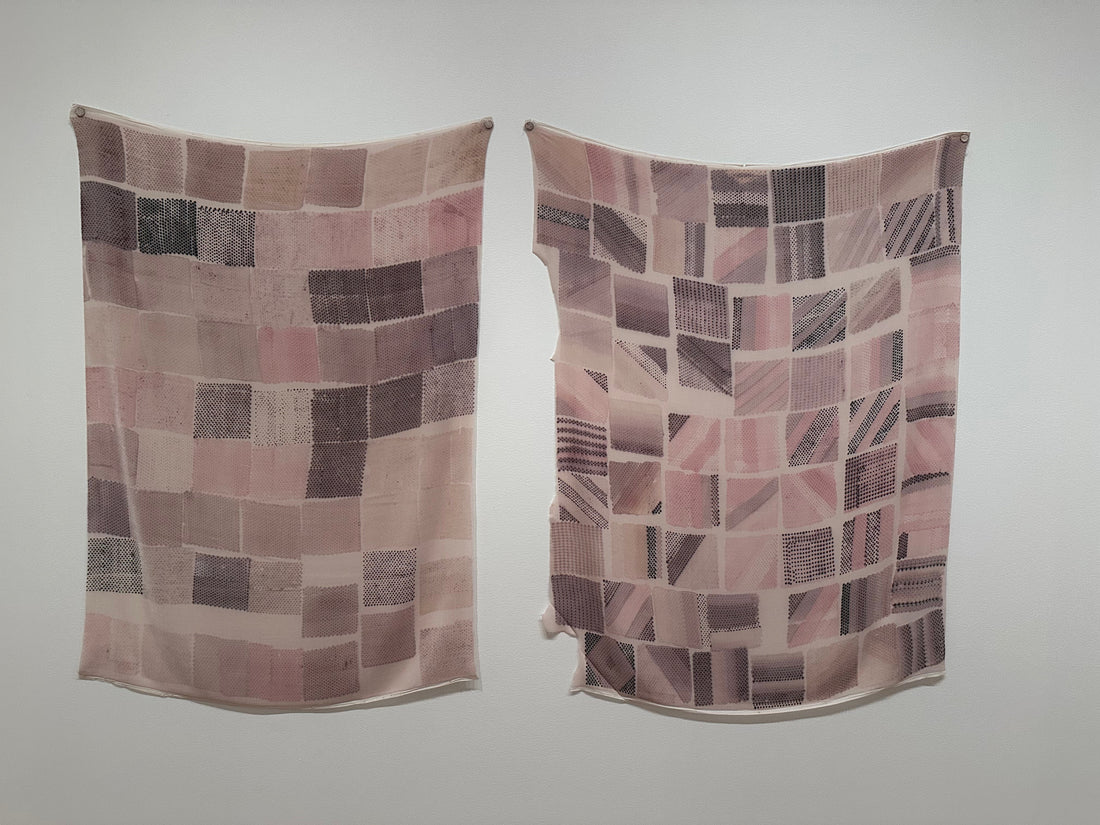I recently went to the MoMA’s Woven Histories: Textiles and Modern Abstraction and wanted to share some of my reflections. While Woven Histories focuses on textiles in the aftermath of World War I, my research on Greco-Roman weaving had striking similarities. This is to say, as a global society we continue to grapple with the hierarchies of “high” and “low” art, “fine” and “applied” art. Just as I argued the shaping of society through weaving, this exhibition highlighted the pivotal role that women played in “fueling transformative vision of a more equitable society” (MoMA). This more recent history struck me as a pattern in the power of textiles. Textiles not only helped create and shape ancient global societies, but have continued to help effect change by undermining traditional art. It feels powerful to position myself as someone who is doing the same: challenging the ways in which we view art through textiles and design.
In the exhibition, the theme of labor was highlighted and stuck out to me as particularly relevant given the current status of global tariffs. While there is an obvious larger conversation about fast fashion, I will focus on the impact on artists and small businesses. I have personally felt and heard of the beginning effects of the tariffs on other small businesses. The U.S. has positioned itself as service based economy, outsourcing most of the textile industry to the Global South. The attempted punishment of these countries by the US government only negatively affects its own economy. We simply do not have the resources, infrastructure, or labor to meet even domestic demand.
One of my favorite parts of Woven Histories was about the issues that arise in reducing labor to formulaic binaries: “local versus global production; free versus alienated work; tradition versus innovation; manual versus mechanized modes of making" (MoMA). There are countless artists and designers I know personally (myself included) who source some part of their business globally. Whether it is yarn imported by the factories in the US, shirts bought from China to be used as a blank canvas, or my own bathmats that are made in India - we are all navigating an impossible situation. I find myself constantly thinking about these false binaries. Running a small business and creating products is inherently capitalist, but at the same time I think a lot about the intention and purpose behind each piece that I bring into the world. This is an ongoing battle between having a livelihood and producing responsibly.
While I don’t know if this is the most eloquent or fully flushed out reflection, I felt like I needed to connect these dots and share my thoughts. I welcome discussion around these topics and am excited to continue exploring these themes in my MFA research!

